Events and Programs Intern Tanya Samyak receives PLP Acceptance from Simmons University
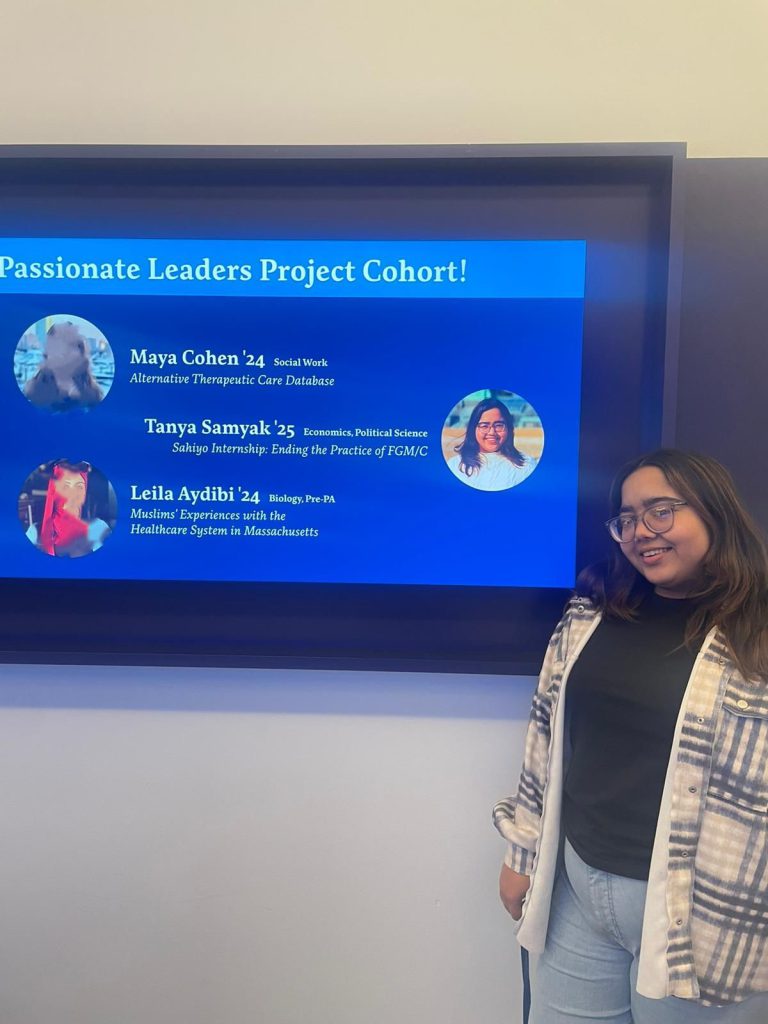
My name is Tanya Samyak (she/her) and I am majoring in Political Science and Economics at Simmons University. In September 2023, I began my role as a Events and Program Intern at Sahiyo U.S. a nonprofit organization based in Mumbai, India and Cambridge, Massachussetts, USA, whose mission is to empower Asian and other communities to end female genital mutilation/cutting (FGM/C) and to create positive social change through dialogue, education, and community collaboration. As an Events and Program Intern, I look forward to supporting various Sahiyo programs and initiatives such as developing educational and informative blog posts and reflection pieces connected to the topic of female genital cutting. I am also very excited to coordinate and produce a webinar that will facilitate discussion on the topic of community engagement with regards to preventing the practice of FGC. Alongside gaining this internship, I applied for and was accepted into the Simmons’ Passionate Leaders Project (PLP), a program administered by the university’s Undergraduate Research Fellowship. The PLP program is meant to support and provide funding for diverse opportunities, extending beyond the boundaries of the traditional classroom setting, such as global experiences, research, internships, service projects, and other creative endeavors. I was thrilled to receive news of my acceptance into this program in late October. Currently, the stipend provided by PLP is being utilized to compensate for my time at Sahiyo as an intern. Lastly, I am grateful to my internship advisor Meg Sinnott, and the rest of the Sahiyo staff whom I am working with: Aries Nuno, Samman Masud, and Mariya Taher for their guidance throughout this internship process.
Volunteer Spotlight: Social Media and Communications Intern Xinge Lei
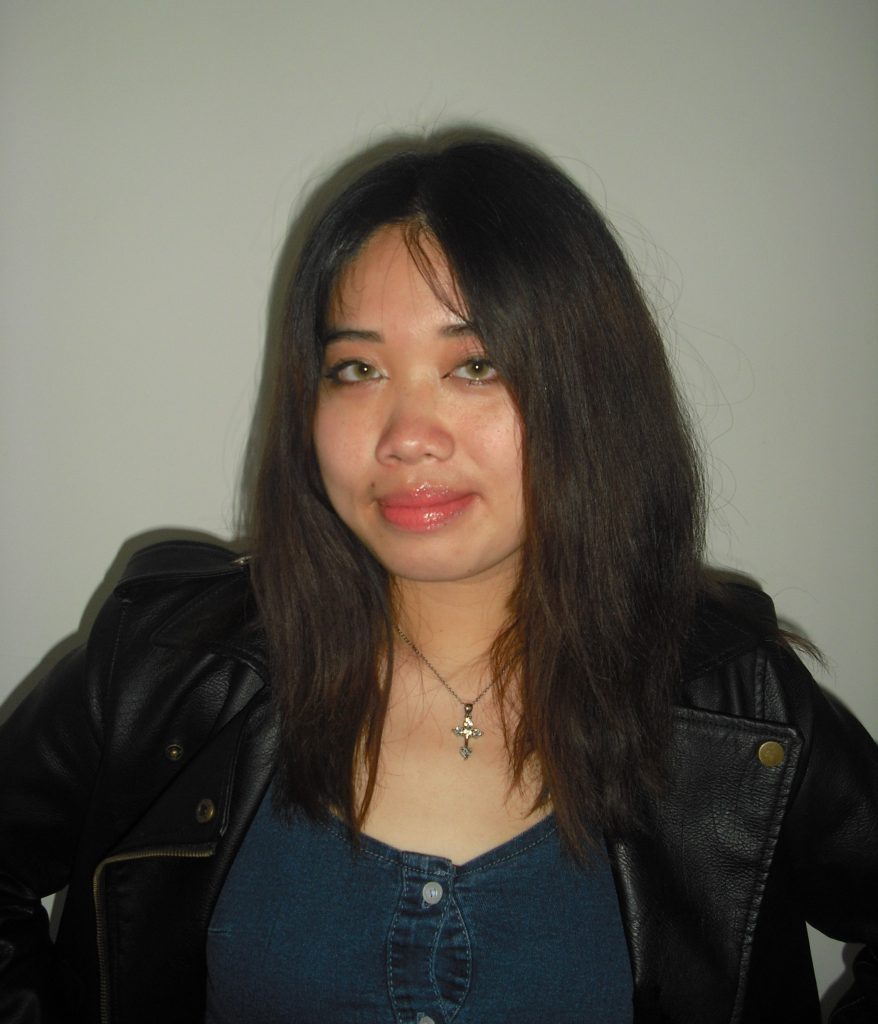
Xinge Lei is an undergraduate student at the University of Georgia with a major in public relations and a minor in human services. As the social engagement manager of her university’s Women in Media organization, she believes in the importance and inherent power of women-owned spaces. She strongly advocates for diversity and inclusivity, especially concerning Asian communities. She is excited to contribute to Sahiyo’s ongoing missions through art, design, and other creative mediums. What was your experience of learning about female genital cutting (FGC) for the first time like? Learning about FGC was extremely emotional for me. I cried while listening to the Voices stories on Youtube, and while I listened to any woman speak on this subject. I was aware of some cutting/mutilation practices, but I have never learned about any in detail. I believed that it occurred somewhere far away, therefore it didn’t concern me. Imagine my surprise discovering that it was prevalent in the U.S as well! Initially, I was horrified, but then my heart just began hurting for everyone who has undergone (and is still dealing with) this trauma. It was definitely a lot to take in. When and how did you first get involved with Sahiyo? I learned about Sahiyo this April as I was browsing for summer internships on LinkedIn. I applied for the social media and communications intern position because I’ve had prior experience in roles like this. I had never worked with a non-profit before, and this seemed like a great opportunity. The position accommodated my summer schedule as well. Kristel Castillo, the social media coordinator, then reached out to me for an interview and that was the most comfortable and relaxed interview I’ve ever had. I knew then that Sahiyo was a good place for me. What does your work with Sahiyo involve? My main responsibility for Sahiyo is creating and scheduling social media content. I make graphics and draft captions for every post, and then schedule them using an online tool. I also help design other visual mediums that the organization uses, such as the Voices to End FGC Screening Guide. Some of my other tasks include maintaining social media followings, tidying up website content and writing captions for articles. How has your involvement with Sahiyo impacted your life? Working with Sahiyo made me realize how compassion shapes the future for human rights, and of course, the power that comes with storytelling. Sahiyo has grown so much since its founding, a mere conversation between a few women. The organization understands that focusing on survivor narratives is what truly drives change. It’s what made me listen and give my own time. I find so much inspiration in them. I also commend those who dedicate their lives to this cause, whether or not they have experienced FGC. FGC is a painful topic, almost foreign to some of us. At the same time though, it is so incredibly important to talk about. I will always remember that. What words of wisdom would you like to share with others who may be interested in supporting Sahiyo and the movement against FGC? Don’t be silent about this. Communities, legislation, and people will only change when word spreads and action ensues. Give your time and donate if you’re able. If not, listen to a couple of stories and do some research on FGC. Sahiyo has tons of resources on its website, including studies, reports, and interviews. Let’s all agree that bodily autonomy is a right that every human being should have. Now that you know, tell someone else about it. Do what you can!
Volunteer spotlight: Development intern Abigail Rose Cervantes

Abigail is an undergraduate at the University of Texas at Austin pursuing a major in English and a minor in Professional Sales and Business Development, as well as a certificate in Computer Science. With a passion for gender equality and social justice, she works to broadcast muffled voices, give young people the opportunity to excel and create, and establish a safe environment that everyone- particularly marginalized women and children- can flourish in. She is excited to prosper within Sahiyo as a Fundraising & Grants/Development Intern. What was your experience of learning about female genital cutting (FGC) for the first time like? FGC is an issue I have been ignorant about for a long time. There’s hardly any mainstream news coverage, and it’s seen as a taboo, as something that only exists in “certain” countries. It wasn’t until Sahiyo that I realized just how widespread FGC is, and that survivors need support. Sahiyo has really opened my eyes to what that looks like and how to best provide it. When and how did you first get involved with Sahiyo? I got involved with Sahiyo as I was searching for internship opportunities in January 2023. I was drawn to the cause of ending FGC and wanted to help support Sahiyo’s mission. Luckily, I was offered a position in April, and I was able to help the organization as a Development Intern. What does your work with Sahiyo involve? As a Development Intern, I work to provide funding and create long term partners for Sahiyo. We research grant opportunities and are active participants in drafting them. I work closely with Michelle, the Development Coordinator, and my peers to ensure that Sahiyo gains all the monetary support it can. Additionally, we search for other ways Sahiyo can gain support outside of donations, such as our Silent Auction. How has your involvement with Sahiyo impacted your life?Sahiyo has educated me immensely. It has ridden my ignorance towards FGC and has opened my eyes to its prominence in America. Sahiyo has taught me that empathy is important, and that part of the change is supporting survivors by creating safe spaces for nuanced and complex conversations surrounding FGC. What words of wisdom would you like to share with others who may be interested in supporting Sahiyo and the movement against FGC?Be empathetic. Don’t believe that something is less important just because it is not as talked about in the media. Encourage conversations and support survivors. If you ever need to invest your time or money in something, do it with an organization like Sahiyo that uplifts suppressed voices and finances safe spaces for survivors.
Volunteer spotlight: Policy intern Delia Donovan
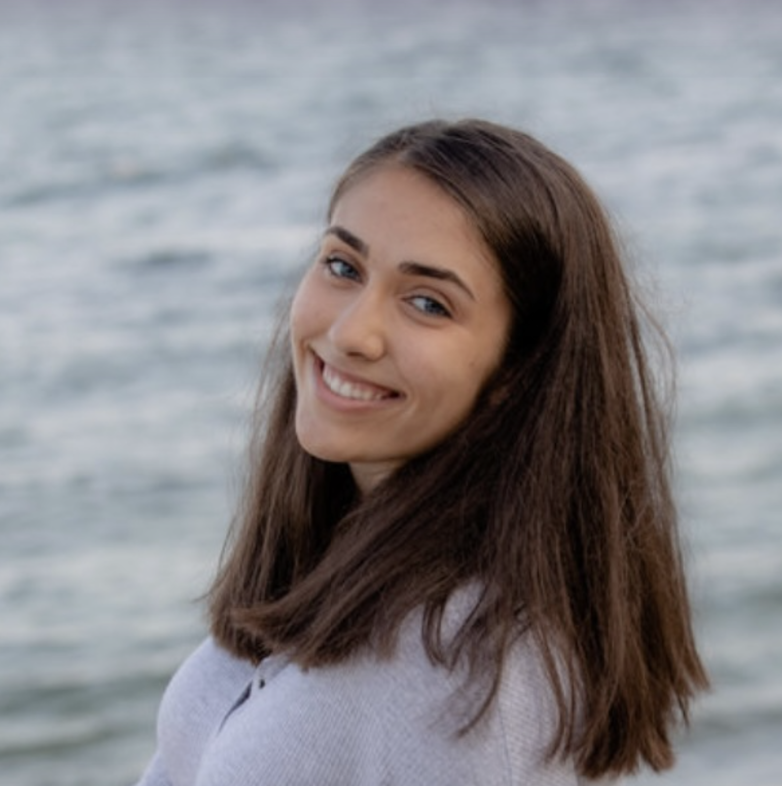
Delia Donovan is an undergraduate student at Emmanuel College in Boston who is pursuing a bachelor’s degree in political science with a minor in theater arts. She is involved with multiple groups and organizations on campus, including Law and Legal Studies Club, Emmanuel Theater, and Radical Hope. As someone with a passion for social justice and human rights law, she is dedicated to uplifting the voices and validating the experiences of women through policy change. What was your experience of learning about female genital cutting (FGC) for the first time like? I’m pretty sure I learned about it while I was watching a horror movie. It was depicted as a practice that was a barbaric form of torture. Of course, I was frightened and confused by it, but I had no idea that this was an inaccurate depiction of what FGC truly is, nor did I realize how common it was within certain communities. When I was applying to join Sahiyo, I had already known that the practice existed but I wanted to learn more, so I did some research. The prevalence of the practice around the world was astounding to me. Once I joined Sahiyo, I learned about the context of why FGC is performed in certain communities and how to address FGC in a culturally sensitive manner. When and how did you first get involved with Sahiyo? I discovered a Sahiyo Development Internship application on my college’s career search engine. I decided to do more research on the organization because Sahiyo’s cause piqued my interest. When I went on the website, I found out that they were also looking for a U.S. policy intern. Being a political science major, this internship seemed like a perfect fit for me! What does your work with Sahiyo involve? The policy internship is relatively new, so I’ve been helping my supervisors build up the internship program. I’ve been working on a policy internship guide, which lists all of the tasks that I have been doing as a policy intern, so that this document can be referenced by other policy interns in the future. I work closely with the CT Coalition to End FGM/C, since Connecticut is one of the 9 states that doesn’t have a law that criminalizes FGC; I take notes for every coalition meeting we have, and reach out to other organizations to encourage them to join the coalition or offer their support. My supervisors and I have also been working on a policy cumulative report, which lists all of the policy and legislative work that Sahiyo has done in the past. This project was started before I joined the organization, but we are continuing to finalize it and it should be done around January. How has your involvement with Sahiyo impacted your life? My time at Sahiyo has been extremely meaningful to me. On a career level, I have been able to witness all of the work that it takes for a non-profit organization to garner support for passing a piece of legislation. Since I’m studying governmental systems in school, I know how long it takes to get legislators to agree on passing a piece of legislation, but it has been so interesting to see this happen from the perspective of a non-profit organization because we are the ones who are doing the community outreach and educating the public. On a personal level, I have been so inspired by all of the survivors of FGC that I have come into contact with and all of their stories. It’s really admirable that they are so dedicated to Sahiyo’s cause of ending FGC, because I can imagine this work cannot be easy as a survivor. It could mean reliving trauma for many people and setbacks must feel fairly personal, yet they continue to stay motivated. It’s an amazing thing to witness. Also, everyone that I have interacted with has been so kind and understanding. We’re all constantly wanting to learn from one another and help each other grow. What words of wisdom would you like to share with others who may be interested in supporting Sahiyo and the movement against FGC? Just because you are not a survivor of FGC doesn’t mean you shouldn’t get involved in helping to end the practice. I myself am not a survivor, and when I was applying for this position, I was worried about overstepping or that I should have more knowledge and experience about the practice. However, it is important for people who aren’t survivors to spread awareness about FGC to communities who don’t know enough about it. Many of my friends and family have not undergone FGC and know very little about the practice, but through my education and experience at Sahiyo, I am able to teach people what FGC really is, why the practice is done, and how we can help stop it. FGC cannot just be an isolated issue in the communities that it affects, awareness needs to be spread much more vastly if we want to end the practice all together.
Volunteer spotlight: Development intern Sarah Rundle
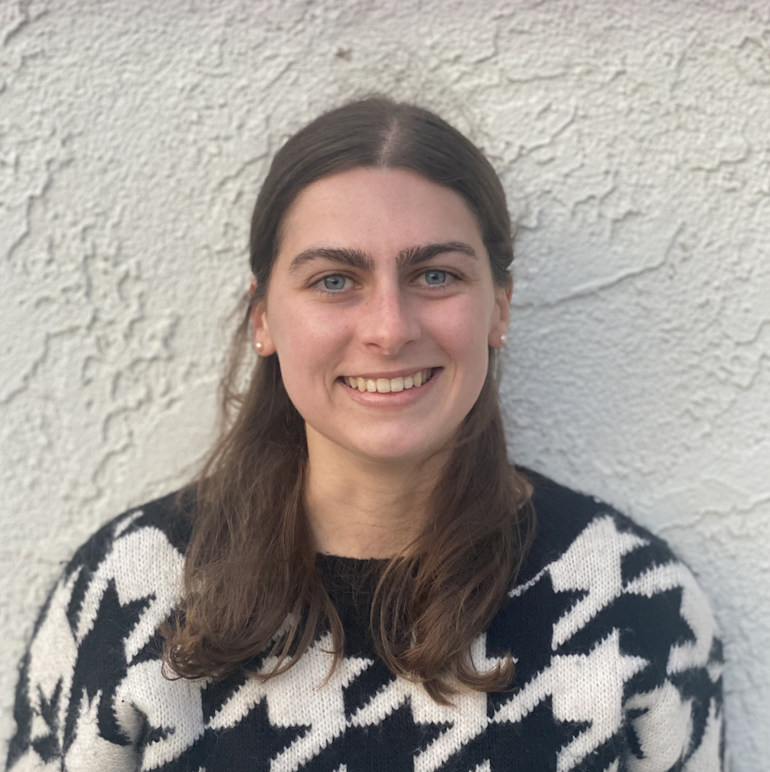
Sarah is a recent UCLA graduate with an English major and Philosophy minor. Through her experiences in university and teaching abroad, she has developed a strong interest in human rights issues, particularly those affecting women. She is excited to be a part of an organization which amplifies women’s voices and strives to enact change through collaborative discourse and education. What was your experience of learning about female genital cutting (FGC) for the first time like?My friend who plans to attend medical school andand become an OBGYN had learned about FGC in one of her classes, and she educated me on its wide-scale impact. When and how did you first get involved with Sahiyo?I learned about Sahiyo in late 2022 when searching for grant writing internships through LinkedIn. When I stumbled upon Sahiyo’s job posting for a development intern, I took a deep-dive into Sahiyo’s blog to learn more about FGC. What I learned was that my impression of FGC was largely inaccurate. While I thought type 3 FGC was the norm, I learned there are actually 4 types of FGC, with type 1 being the most common. I had also thought FGC occurred mainly in African countries; I learned from Sahiyo that it also occurs in many Asian countries and the U.S. Realizing how little I knew about FGC, I developed an interest in learning more, and knew working for an organization like Sahiyo would provide the opportunity to further my education while also positively contributing to the organization’s daily operations. What does your work with Sahiyo involve?As a Development Intern, I help acquire donors for future fundraising events like our International Women’s Day Celebration and Silent Auction, write donation appeal emails, and draft letters of intent for grant applications. How has your involvement with Sahiyo impacted your life?Sahiyo has opened my eyes to how greatly Americans need to be educated on FGC. Looking back six months ago, I now see how uninformed I was on what FGC even is, let alone its pervasiveness. Working for Sahiyo has allowed me to further understand why FGC occurs, who practices it, and why many communities continue the practice. FGC is a complex, nuanced issue that requires an empathetic approach when educating practicing communities on its harms, instead of pure condemnation. Sahiyo has not only educated me, it has also allowed me to start conversations with people in my community about FGC, which will hopefully have a ripple effect. What words of wisdom would you like to share with others who may be interested in supporting Sahiyo and the movement against FGC?It’s never too late to start educating yourself or others about FGC. Even for those who know about FGC, I encourage you to continue learning, as the work to end FGC is ever-evolving and requires organizations and advocates to employ new tactics for promoting positive change.
Volunteer spotlight: Editorial Intern Megan Seaver
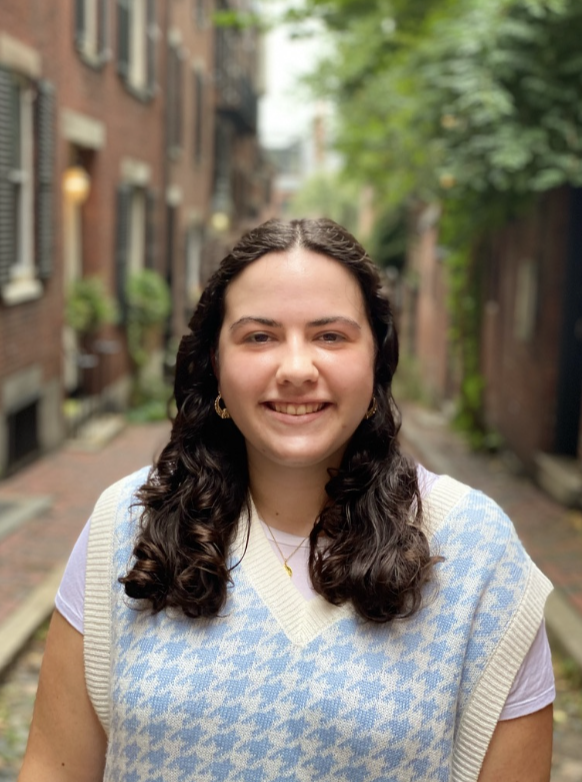
Megan Seaver is an undergraduate student at Emmanuel College, pursuing a bachelor’s degree in writing, editing, and publishing, as well as minors in political science and gender studies. Throughout college she has been a part of student organizations, Her Campus and WGS, that help women to speak their truth and to support one another. She believes that being open to hearing the stories and experiences of all women will make it easier to create a safer and more accepting world for all people. What was your experience of learning about female genital cutting (FGC) for the first time like? It was primarily an educational experience, as I had little knowledge about FGC when I first started at Sahiyo. I had to look at the practice with an open mind and heart if I was to truly understand why FGC occurs, and therefore better serve the needs of survivors that work with Sahiyo. When and how did you first get involved with Sahiyo? I first became involved as an editorial intern back in April. I had seen the position posting on my school’s internship board and was attracted to the ways in which Sahiyo uses storytelling as a form of activism. What does your work with Sahiyo involve? My work involves editing blog posts for publication, reaching out to Sahiyo’s network with requests, like providing research for a blog or being part of an upcoming campaign. It also involves promoting Sahiyo’s blog and providing volunteers with prompts and topics to write about in posts. I have recently begun sending out weekly writing prompts to our volunteers to help encourage folks with the writing process. How has your involvement with Sahiyo impacted your life? It’s encouraged me to be more conscious of my privilege from a feminist perspective, and it’s also caused me to realize that the work I most enjoy doing is work that positively impacts people and their communities. What words of wisdom would you like to share with others who may be interested in supporting Sahiyo and the movement against FGC? Just because you are not directly affected by a problem does not mean you cannot be a part of the solution. Suffering and inequality against women and girls is something that affects all people, and therefore a woman’s problem is also everyone’s problem; that includes FGC.
Volunteer Spotlight: Events & Programs Intern Derrick Simiyu

Derrick Simiyu is a programs, monitoring and evaluation professional and passionate about upholding women’s rights and gender equality which drove him to volunteering in a community based organisation that supports girls in areas of Sexual Reproductive Health Rights (SRHR) and Menstrual Hygiene Management (MHM). What was your experience of learning about female genital cutting (FGC) for the first time like? The first time I heard about FGC was after high school. This came about as a result of networking with an activist against the extensive FGC in Kenya. I learned through this experience how dangerous FGC is and how activism is necessary to stop this damaging practice. When and how did you first get involved with Sahiyo? I first heard about Sahiyo in 2022. This was during my volunteership period in a community-based organization that champions for the rights of girls and young women. I realized that Sahiyo has the same values as the organization and so after seeing the opportunity for an internship, I immediately applied. I got an interview opportunity and that is how I first got involved with Sahiyo. What does your work with Sahiyo involve? I currently work in Sahiyo as an events and programs intern. My work at Sahiyo involves researching new topics for webinars, planning webinar agendas, attending virtual events from other organizations, and writing reflections about webinars for Sahiyo’s blog. How has your involvement with Sahiyo impacted your life? When I first heard about FGC, I thought it was just a light matter that only affected women from marginalized communities in Kenya. My mindset changed when I got involved with Sahiyo because I realized that FGC was not only an African issue but a global issue that affects more than 92 countries in the world. Sahiyo has made me more mindful and careful with my words, especially toward survivors and practicing communities. I am more mindful of using cutting rather than mutilation because I now know the psychological effects that come with the word mutilation on the practicing communities and the survivors of FGC. What words of wisdom would you like to share with others who may be interested in supporting Sahiyo and the movement against FGC? FGC has an impact on men as well as women in society. Men are indirectly affected when their daughters, spouses, or girlfriends have had FGC even though they are not directly afflicted in the same way that women are. This is why it is important for all men to join the fight against FGC. Through Bhaiyo, Sahiyo has the structures in place for that. It is plain and simple: anyone can get involved in this movement and use their skills to combat FGC.
Volunteer Spotlight: Programs Intern Hannah Manucal
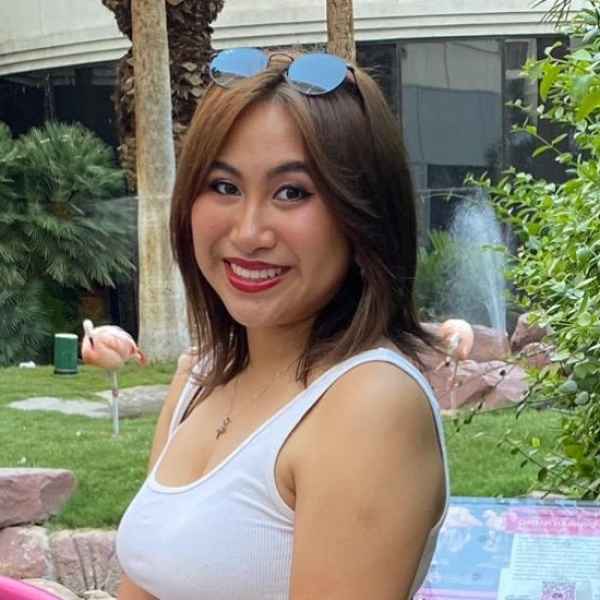
Hannah is a lifelong lover of writing and a recent graduate from California State University, East Bay, where she earned a B.A. in English. She believes in the powerful use of storytelling to produce social change in communities fighting for equality. She hopes to use her voice as a writer to uplift the voices of others. What was your experience of learning about female genital cutting (FGC) for the first time like? I first learned about FGC in high school. I think I initially dismissed the topic of FGC, believing the lie that it is something that only happens in faraway, developing countries, and not in the U.S. where I live. I quickly realized that there are many people in the U.S. who have gone through or are at risk of undergoing FGC, and even though I am not directly affected by FGC, it does not mean I should not care about it. When and how did you first get involved with Sahiyo? Last December, I found myself struggling to find a job where I could utilize my love for writing. I was searching for an internship online, and I saw that Sahiyo was looking for an events and programs intern. My interview with Sahiyo was my first ever job interview, and on my 23rd birthday, I was honored to receive an offer to join the team. I have been working with Sahiyo since January 2023. What does your work with Sahiyo involve? My work with Sahiyo involves assisting in webinar planning. This includes planning the agenda and helping the social media team with advertising for the webinar. I also assist with other Sahiyo programs as needed. How has your involvement with Sahiyo impacted your life? My work with Sahiyo has made me realize that many people carry shame from things that have happened to them against their will. The stigma surrounding sex makes it especially difficult for survivors of FGC to come forward, so if anyone is brave enough to share their story, the least I can do is listen. Having listened to the stories of several survivors from the Voices to End FGM/C Fall 2022 Cohort, I have realized how important it is to uplift their voices in hopes that they may find some comfort in knowing that they are not alone, and their pain is valid and acknowledged. What words of wisdom would you like to share with others who may be interested in supporting Sahiyo and the movement against FGC? I would encourage people to begin talking about FGC with those around them. Many people are unfamiliar with FGC, much less the legislation surrounding the movement to end it. There are great webinars on Sahiyo’s social media accounts to share with friends and family. Most of all, those supporting the movement against FGC must become empathetic allies to survivors, creating a space for survivors to share their stories without fear of judgement. The world will become a much better place when we talk about the things that hurt us, and we stand beside those who are hurting.
Volunteer spotlight: Aries Nuno
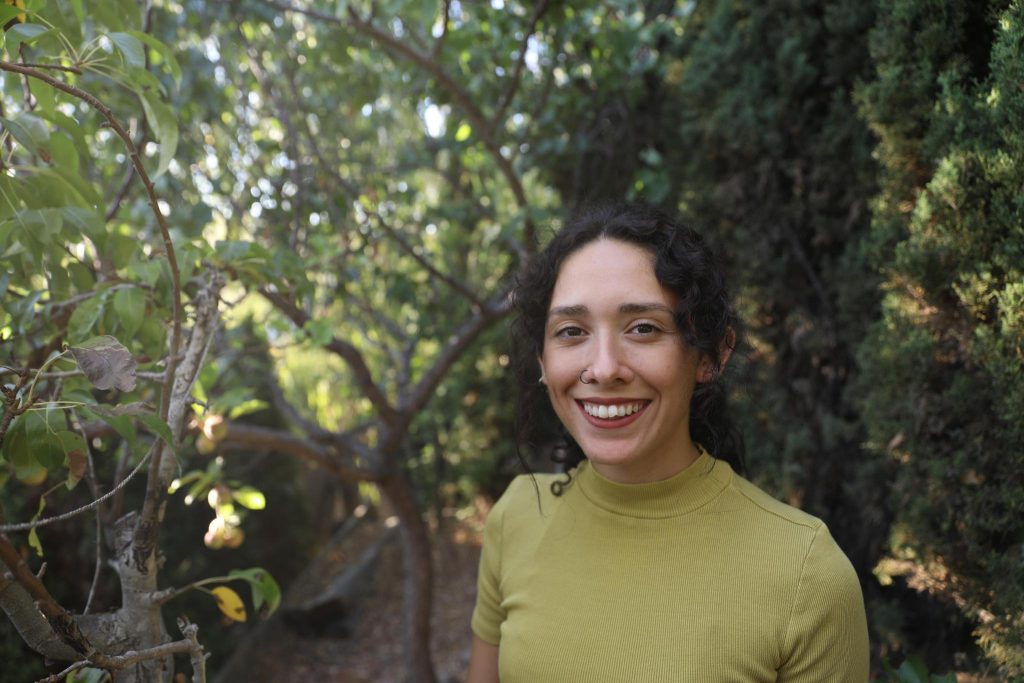
Aries Nuño is a graduate student at Johns Hopkins University pursuing a Master of Science in Public Health, with interests centered around the socio-cultural influences on an individual’s experience with their sexual and reproductive health. Currently, she works for the Center for Communication Programs, where she is actively involved in the formative research process to address FGM/C in Ebonyi, Nigeria utilizing human-centered design efforts. Additionally, she works for the Center for Indigenous Health, primarily supporting the expansion of web-based access to self-administered STI and HIV testing for Indigenous populations across the US. Before her academic journey at Hopkins, she served as a Peace Corps volunteer in Lesotho, co-developing initiatives for reducing the incidence of HIV/AIDS. What was your experience of learning about FGC for the first time like? I might have been in high school at the time, and though I don’t remember the exact moment I first learned about FGM/C, I remember carrying a heavy feeling of discomfort as I tried to wrap my head around the pain and hurt this practice caused. It wasn’t until the COVID-19 pandemic that I revisited the topic, watching a documentary called “The girl who said no to FGM,” highlighting Jaha Dukureh’s story. From there, I invested more time into researching (reading books such as Transcultural Bodies: Female Genital Cutting in Global Context) to learn more about the cultural/traditional relevance of FGM/C, in addition to some of the socioeconomic motives for its continuance. When and how did you first get involved with Sahiyo? I first heard about Sahiyo through a professor at my university whose work involves improving healthcare for women affected by FGM/C. I was seeking opportunities to support organizations and individuals working to end FGM/C in a way that allowed me to contribute my public health background to raise awareness and advocate for change. Once I learned more about Sahiyo’s history as an organization and its multifaceted approach to education and awareness raising, I was eager to support their mission. What does your work with Sahiyo involve? I have been volunteering with Sahiyo for a little over a year now, and I’ve had the opportunity to collaborate on a variety of initiatives. My first assignment with Sahiyo was to assist with a literature review as part of the formative research for their Critical Intersections project, a global study seeking to address ways in which FGM/C interacts with other forms of oppression. Most recently, on the same project, I’ve conducted in-depth interviews with professionals and anti-FGM/C advocates to collect qualitative data regarding their perspectives on how FGM/C intersects with other social justice issues; this was to better understand the challenges and needs of survivors from diverse backgrounds. Other projects over the year have included copyediting reports, assisting in a service provider training session, and developing informational handouts and a screening guide for Sahiyo and StoryCenter’s Voices to End FGM/C program. How has your involvement with Sahiyo impacted your life? My experience with Sahiyo has been invaluable. I am humbled by the compassionate and dedicated individuals I have had the opportunity to meet and work together with. Furthermore, I am grateful to the survivors of FGM/C, whom I’ve had the privilege to listen to and learn from as they shared their experiences and motivation to bring change to their communities. I am more than ever determined to be an ally in contributing to the revolution of gender and health equity. What words of wisdom would you like to share with others who may be interested in supporting Sahiyo and the movement against FGC? Respecting culture and tradition is crucial when addressing the practice of FGM/C. It is important to understand that FGM/C is often perpetuated by cultural and societal attitudes and is deeply rooted in the beliefs and traditions of communities that practice it. As an outsider to the practice, a judgmental approach can alienate the very communities we hope to engage. It is essential to engage with communities in a respectful and culturally sensitive manner in order to work collaboratively and to create solutions that are sustainable and in line with their values and beliefs. By doing so, we can help to create lasting change and promote gender equality while respecting cultural diversity.
Volunteer spotlight: Naquia

Naquia is a Research Associate at Cornell University where she studies public health policy, homelessness, and health inequities. She recently graduated from the University of Michigan with a degree in Public Health and a minor in Spanish. She is passionate about destigmatizing sexual and reproductive health, supporting immigrant and refugee communities, and promoting cultural humility in health care. Naquia will be attending medical school in 2023 and aspires to become an OB/GYN. What was your experience of learning about female genital cutting (FGC) for the first time like? I learned about FGC for the first time when I was taking a gender and health class during my first year at the University of Michigan. When my professor mentioned the name of my own community during the lecture, I was shocked and confused. I later learned that while I was not subjected to the practice, nearly every generation of women in my family was forced to undergo FGC quietly, secretly, and without consent. Learning about FGC and its impact on the people I love and care about has driven me to create a safe space for survivors to share their stories. When and how did you first get involved with Sahiyo? Although I had learned about FGC from an academic perspective as a public health student, I struggled to begin questioning the practice in my own community where talking about women’s bodies was taboo. After graduating from college last year, I wanted to support an organization that centers the experiences of survivors and communities affected by FGC. I learned about Sahiyo from a close friend and decided to apply to become a volunteer. What does your work with Sahiyo involve? I’ve been involved in the Critical Intersections Research Project, which aims to understand the impact of different social oppressions, such as Islamophobia and systemic racism, on the movement to end FGC. I’ve been able to use my background in research to help support this work by interviewing activists and providing qualitative analysis. Connecting with activists and grassroots organizations has greatly expanded my understanding of the broader context of FGC within structural oppression, as well as the complex challenges activists face in ending FGC. How has your involvement with Sahiyo impacted your life? As someone who comes from a community that practices FGC and aims to become a physician who can provide care with cultural humility, my involvement with Sahiyo has significantly impacted my life. For years, I felt alone and discouraged when trying to talk to members of my community about FGC; through Sahiyo, I’ve been able to connect with a supportive network of survivors and allies, learn from the experiences of activists, and gain courage to talk to my family members and other community members with sensitivity. What words of wisdom would you like to share with others who may be interested in supporting Sahiyo and the movement against FGC? Silence is one of the most pervasive challenges in the movement to end FGC, but speaking out can come in many different forms. Whether it means sharing information on social media, having a challenging conversation with a family member, or prioritizing your own mental health, activism and healing will look different for everyone. I am incredibly grateful for Sahiyo in providing me with the guidance and support to become a life-long advocate.
